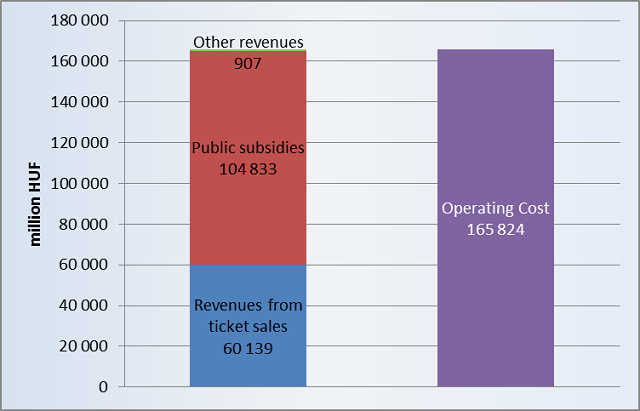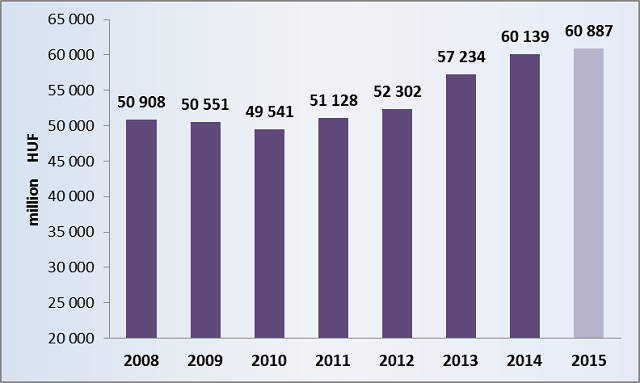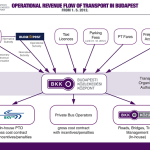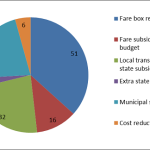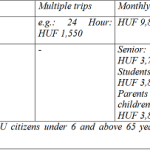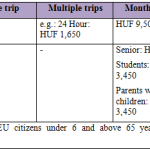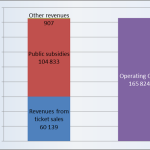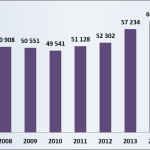Budapest : Financing / Pricing data
Fares
BKK is responsible for fares, scheduling, ticketing and revenue protection/ticket control.
Presentation of the fare and ticketing system
The existing local and suburban tariff systems are currently different from each other but steps have already been taken towards an integrated system. In parallel to the implementation of the Automatic Fare Collection system in Budapest, the fare structure is also revised. BKK’s aim on the long-run is to establish a fully integrated fare structure system in local and regional level.
The Budapest local tariff system contains currently one zone and a flat fee. BKK tickets are valid only on local and suburban services ordered by BKK. Tariff integration (in the framework of the Budapest Transport Association) of all local and suburban services in Budapest area started in 2005 with the introduction of mandatory integrated passes. Tariff integration was extended in 2009 when all local passes became integrated passes. In 2011, the Budapest Transport Association finished its activity, but tariff integration was extended further. Since 2011 tariff integration has included all local travel cards (24h, 72h, 7-day travel cards) and all passes (14-day, 30-day, quarterly, semester and one-year).
The suburban tariff system consists of km-based tariff until 30 km in 5 km sections and until 100 km in 10 km sections. The tariff level per km is the same on rail and road services.
Suburban bus and rail services ordered by BKK can be used outside Budapest with suburban tariff.
Travel discounts are different on local and regional services regulated by government decree.
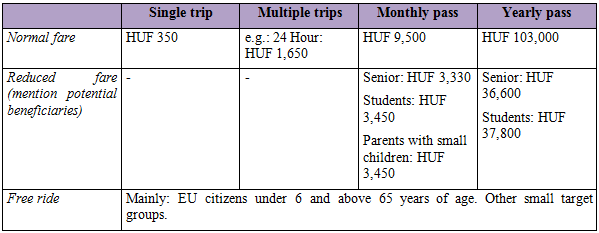
Funding of public transport in 2014

